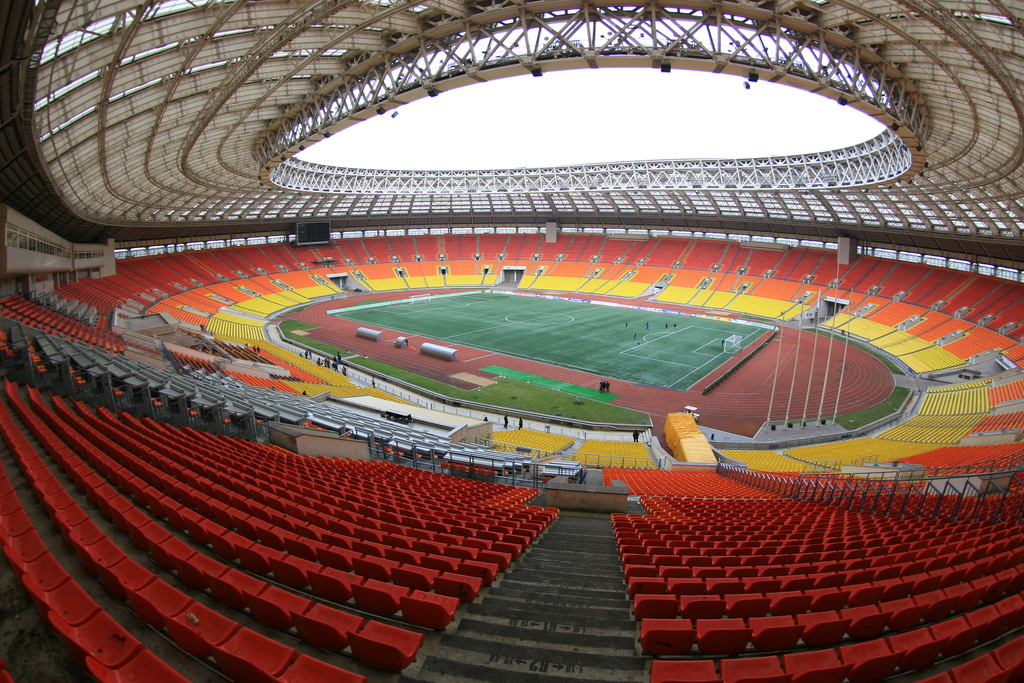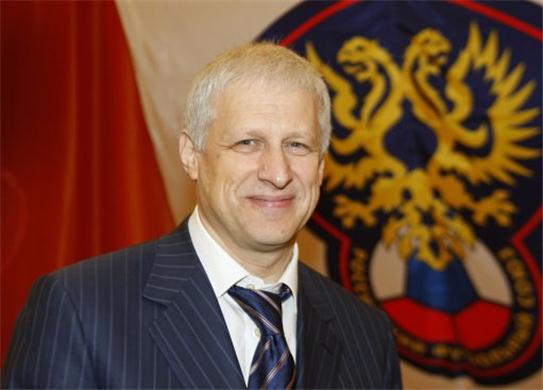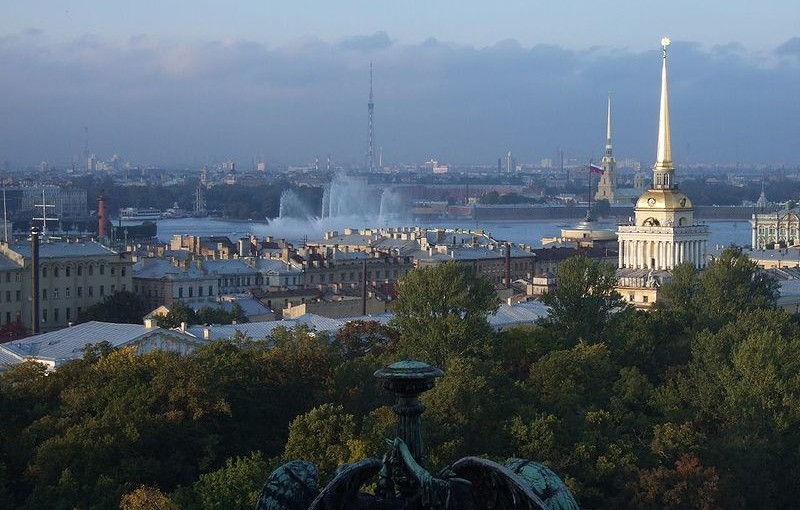By David Gold
March 1 – Russia 2018 chief executive Alexey Sorokin has revealed to insideworldfootball that St Petersburg is the favourite to host the second 2018 World Cup semi-final.
It is already known that the Luzhniki Stadium in Moscow will stage a semi-final and the final of the competition, as it will be the only stadium to meet FIFA’s venue capacity regulations for the tournament final once renovations are complete.
When asked which of St Petersburg and Yekaterinburg, the two stadia leading the battle to host the other semi-final, would stage the match, Sorokin gave the strongest indication yet that it will be the former.
“[It is] most likely St Petersburg, yes,” he told insideworldfootball.
“We’ll know for sure when we know the design of all the stadia.”
Sorokin also confirmed, as indicated by Sports Minister Vitaly Mutko last year, that Russia was aiming to go with FIFA’s preference and use 12 stadiums in total, rather than 13 as had previously been discussed.
The Russia 2018 chief indicated that the number of host cities would therefore depend on how many stadia for the World Cup will be in Moscow.

As well as the Luzhniki (pictured), Dynamo Moscow and Spartak Moscow are constructing new grounds, and a fourth newly constructed stadium in the Russian capital was included in their World Cup bid book.
Sorokin indicated that Moscow could have only two stadia hosting matches during the World Cup, and if that was the case, there would likely be 11 host cities.
One thing is certain – every single stadium being used is either being built from scratch or reconstructed.
Another certainty is that the host city announcement will be made later this year, after it was confirmed by Sorokin last November that the decision was being brought forward from 2013, when it was originally scheduled.
That decision was made because Russia wanted to move ahead with preparations rather than stalling construction work.
Similarly, insideworldfootball recently revealed that Russian legislation that prevents beer being sold or advertised at sports venues would be overturned to meet FIFA requirements when Russia passes its World Cup law later this year.
Progress with the World Cup law and host city announcements stands in marked contrast to the wrangling FIFA has endured with Brazil over the 2014 showpiece.
Disagreements on the sale of alcohol in stadiums have been the sticking point for Brazilian congressmen and women who have held up the World Cup law, and continue to do so.
Brazil also prevaricated on naming host cities for the 2014 World Cup, eventually passing the decision over to FIFA.
“I can tell you that we are far, far advanced [in Russia],” FIFA President Sepp Blatter said in January while in Russia.
“Even, I would say, we have more problems actually in Brazil than…here.”
Sorokin refused to compare Russia to Brazil, despite the similarities in geography, time to prepare for the World Cup and general development.
“I cannot compare us to Brazil, we’re at totally different stages so it is inappropriate to try and compare us now,” he said.
“But they have less time until the World Cup so the comparison is out of the question.”
In response to questions about FIFA reforms and who may be Blatter’s successor, which he batted away diplomatically by insisting that he is “an executive, not a football politician”, Sorokin spoke warmly of the working relationship Russia 2018 have forged with world football’s governing body.
“All I can say in all honesty about FIFA is that we enjoy genuine good working relations with them”, he said, reciprocating the positive words FIFA’s general secretary Jérôme Valcke has had for them.
“It’s steady, it’s a true partnership where we know who the real owner of the competition is but it’s very constructive indeed – that’s the honest truth.”
Beyond merely organising the tournament, Russian Football Union President Sergei Fursenko (pictured) has said that they plan to win it, too.

Sorokin backed his lofty ambitions, despite Russia never having come close to winning the competition before, though acknowledging that they are unlikely to succeed.
“To achieve something you have to sometimes have targets which may seem unrealistic and I honestly believe that setting high targets and priorities is the key to success,” he said.
“It doesn’t need to be taken literally.
“It’s a grand aim that we need to strive for, but speaking technically it’s a long way.
“And we have to go a long way to achieve [it] but it’s good to be aiming at that.
“I mean the goal of having the World Cup may have seemed very unrealistic two years ago – there were a lot of voices from people who thought we were crazy by applying.
“God works in mysterious ways…and so does football”
Contact the writer of this story at zib.l1734831742labto1734831742ofdlr1734831742owedi1734831742sni@d1734831742log.d1734831742ivad1734831742
Related stories
October 2011: Moscow, St Petersburg and Yekaterinburg in race to host 2018 World Cup semi-finals

